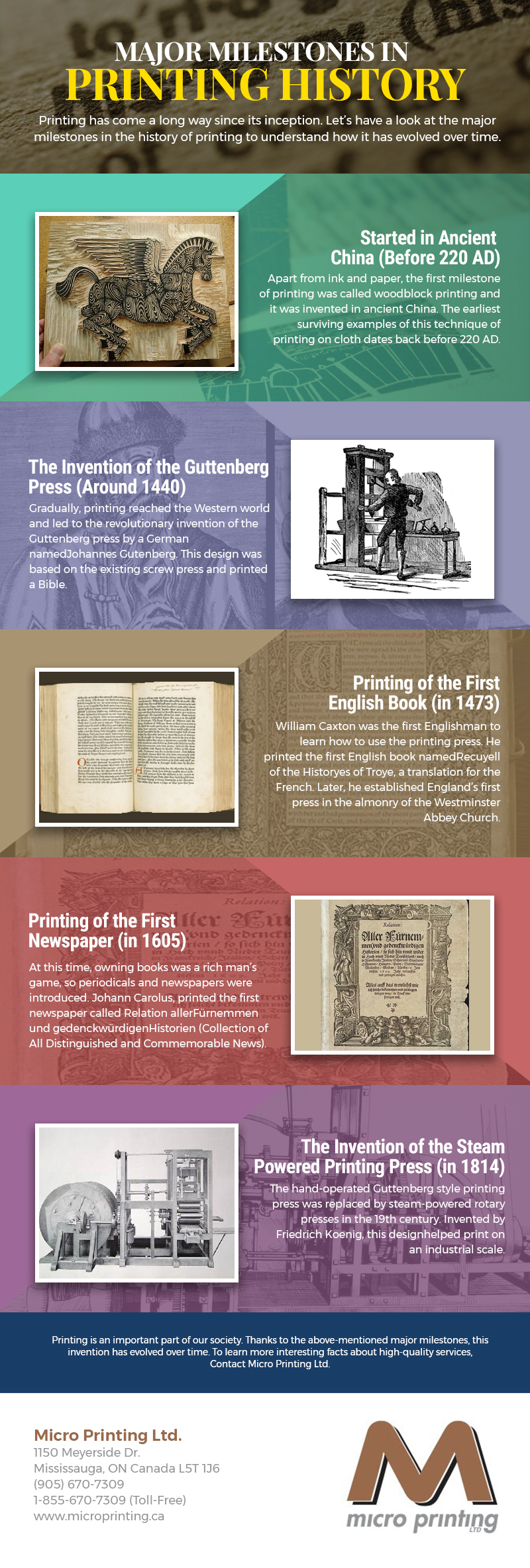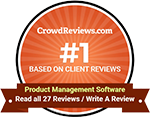How to Set Up a Quote to Order Workflow in Printcart for WooCommerce B2B Print Shops
Learn how to create a complete quote-to-order system using Printcart for WooCommerce. This step-by-step guide covers B2B print quotes, PDF quote generation, bulk pricing logic, file uploads, and converting quotes to orders — perfect for custom and high-volume Web2Print businesses.
- By David Printcart
- 189 views
- 0 reply

David Printcart
This quote has stayed with me throughout my journey—especially as I built Printcart from the ground u "What doesn’t kill you makes you stronger."
This quote has stayed with me throughout my journey—especially as I built Printcart from the ground up.
I'm David, CEO of Printcart, a division of Netbase JSC, and I’ve dedicated the past 15 years to transforming the Web-to-Print and Print-on-Demand (POD) industry. My goal from the beginning has been clear: to help printing businesses around the world scale through automation, personalization, and smart technology.
Before Printcart, I spent years consulting and launching web-to-print platforms for printers of all sizes—from local shops to global enterprises. That experience taught me to ask the right questions:
How can we reduce manual steps for printers and let them focus on growth?
What tools do customers need to personalize and place their orders effortlessly?
How can we make the Web2Print journey smoother, faster, and more profitable?
At Printcart, we combine AI, cloud-based automation, and a plug-and-play customization engine to bring that vision to life. But more than features, we care about outcomes—helping our clients deliver better user experiences, close more deals, and scale sustainably.
I’m always open to new ideas and feedback from the community. If you’re exploring how to evolve your print business or launch a new eCommerce venture with Web2Print capabilities, feel free to connect directly.
Let’s talk growth.
Email: project@printcart.com
My WhatsApp: +84937869689 ...
Related Post
Unboxing Screen Printing on Tote Bags Struggling to preserve the quality of fabric while screen printing your designs? Youre not alone. Many creators face challenges such as maintaining fabric integrity...
The Advent of Printing: The Stone to Paper Journey Understanding the evolution of printing methods can unlock a treasure trove of historical knowledge. For centuries, the world relied on painstaking...
Soaring Beyond Generic Promotional Products Frustrated by standing out in a sea of promotional products? You’re not alone. In todays saturated market, businesses struggle to differentiate their offerings. Personalization is...
Other Usefull Contents
You can see many success stories from our customers, and you may be one of them in the future













How to Set Up a Quote to Order Workflow in Printcart for WooCommerce B2B Print Shops
Introduction
In B2B print commerce, many customers prefer to request a quote instead of placing an order immediately. Whether it’s for bulk stationery, exhibition materials, or custom signage, price often depends on specifications — and the checkout process needs to support this.
Printcart’s Quote-to-Order workflow gives WooCommerce store owners the tools to:
Collect detailed quote requests via form
Attach uploaded artwork or design briefs
Generate branded PDF quotes automatically
Review, approve, and convert those quotes into orders
This tutorial will show you how to set up and manage the full quote request cycle in Printcart — ideal for bulk, corporate, or made-to-spec print jobs.
Enable Quote Request in Printcart
The first step is to activate the quote mode for your Printcart-powered product.
Step 1: Enable Quote Function Globally or Per Product
There are two ways to turn on quote requests:
A. Global Activation
Navigate to PC Designer > Settings > Get Quote
Toggle Show button request quote in checkout page and Enable quote to Yes
Enable registration and CAPTCHA to reduce spam
Choose whether to hide product prices and add-to-cart buttons
B. Product-Specific Activation
Go to Products > All Products > Edit a specific item
Scroll to NBDesigner Settings > Quote tab
Check:
Enable Quote for this product
Optionally hide Add to Cart or price display
Save the product settings
Tip: Quote mode supports both design-enabled and upload-only products.
Step 2: Choose Quote Display Mode
You can choose where the quote request button or form appears:
On the product detail page
In the checkout
As a dedicated quote request page in your navigation
To customize layout and display style, go to:
PC Designer > Settings > Appearance > Printing Options
Enable popup or section display
Control visibility of price and button elements
Step 3: Test the Frontend Flow
Visit the product as a customer and confirm:
The “Request a Quote” button is visible
Clicking it opens a form with fields like name, email, and message
File upload works as expected
The PDF quote is generated if configured
Build a Custom Quote Request Form with Branding, File Uploads, and Conditional Fields
Step 1: Add and Customize Form Fields
Go to PC Designer > Get Quote > Form
Add fields such as:
First Name, Last Name (Text)
Email (Text, with email validation)
Message (Textarea, optional)
File Upload (optional, for artwork or specs)
Use the Edit button to set labels, placeholders, and validation
Drag fields to reorder them
Step 2: Branding and PDF Quote Settings
Navigate to PC Designer > Get Quote > PDF Quote
Upload your brand logo
Enable PDF generation and email attachment
Optionally hide product list in the email
Step 3: Form Behavior Settings
Enable reCAPTCHA to protect from spam
Toggle form autocomplete from WooCommerce data
Allow guest submissions or require login for quote requests
Coming up next: Reviewing, Approving, and Converting Quotes to Orders in WooCommerce
Reviewing, Approving, and Converting Quotes to Orders in WooCommerce
Once customers submit a quote request through your Printcart-enabled form, the admin workflow begins. Here's how to review submissions, adjust pricing, and convert approved quotes into WooCommerce orders.
Step 1: Access and Review New Quote Requests
Go to WooCommerce > Orders or PC Designer > Get Quote > All Requests
You’ll see a list of submitted quote requests with customer details and product specs
Click on any quote to view:
Submitted form fields (e.g., name, email, message)
Selected product options (e.g., material, size, quantity)
Attached files (artwork or briefs)
Step 2: Modify and Finalize the Quote
From the quote detail page, you can:
Adjust pricing manually if needed
Add notes or internal comments
Attach a new PDF quote file (auto-generated or uploaded)
Change the status to "Approved" or "Rejected"
If the quote requires customer confirmation, resend the quote email with the updated file.
Step 3: Convert to Order
Once a quote is approved:
Click Convert to Order on the quote page
A WooCommerce order is automatically created with:
All selected product options
Final pricing and tax calculations
Customer details pre-filled
This new order appears in your WooCommerce order dashboard and can be processed like any regular order.
Step 4: Notify the Customer
Use WooCommerce or your email tool to notify the customer that their quote has been approved and converted
Include a payment link or invoice
Optionally, attach the PDF quote for records
Coming up next: Syncing Quote Data with CRM or Google Sheets (Automation Tips)
How to Set Up a Quote to Order Workflow in Printcart for WooCommerce B2B Print Shops
Why Automating Quote Data Sync Boosts Sales and Reduces Manual Work
In B2B print commerce, many customers prefer to request a quote instead of placing an order immediately. Whether it’s for bulk stationery, exhibition materials, or custom signage, price often depends on specifications — and the checkout process needs to support this.
Printcart’s Quote-to-Order workflow gives WooCommerce store owners the tools to:
Collect detailed quote requests via form
Attach uploaded artwork or design briefs
Generate branded PDF quotes automatically
Review, approve, and convert those quotes into orders
This tutorial will show you how to set up and manage the full quote request cycle in Printcart — ideal for bulk, corporate, or made-to-spec print jobs.
How to Design and Send Branded PDF Quotes Automatically in Printcart
Automating the quote PDF process saves time and ensures your quotes are visually aligned with your brand. Printcart allows store owners to generate and send PDF quotes that include pricing, product details, and design previews — all without needing third-party tools.
Step 1: Enable PDF Quote Generation
Navigate to PC Designer > Get Quote > PDF Quote:
Enable the toggle for Generate PDF Quote
Upload your company logo
Choose whether to include:
Product details
Customer contact information
Pricing or leave it blank for manual entry
Step 2: Customize the Layout and Format
You can personalize your PDF quote’s appearance by editing:
Header and footer text (e.g. contact info, terms)
Page orientation (portrait or landscape)
Background color and font styling
Optional: Add a watermark for preview-only quotes
Step 3: Attach PDF to Emails Automatically
In PC Designer > Get Quote > Settings, enable:
Attach PDF Quote to Admin notification email
Attach PDF Quote to Customer confirmation email
This ensures both parties get a copy of the quote as soon as it’s submitted or approved.
Step 4: Preview the PDF Output
After setting up your layout:
Submit a test quote from the frontend
Open the email or order record
Download and review the attached PDF
Make sure the layout is clean and includes all necessary details.
Step 5: Optional Advanced PDF Options
Enable password protection if handling confidential projects
Include an approval checkbox in the PDF for signature-style acknowledgment
Add an expiration date field to trigger urgency in decision-making
Recommended PDF content includes:
Quote reference number
Customer name/company
Date of request
Product/service breakdown
Estimated turnaround time
Link to upload or approve design
For more help, refer to the official Printcart PDF setup guide.
Coming up next: Managing and Approving Quotes from the Admin Dashboard
Managing and Approving Quotes from the Admin Dashboard
Effectively managing incoming quote requests is essential to converting leads into orders. Printcart provides WooCommerce administrators with a dedicated backend system to view, process, and update quote statuses while keeping both staff and customers informed.
Step 1: Access the Quote Management Panel
Go to PC Designer > Get Quote > All Requests to view all submitted quote forms. Each entry includes:
Customer name, email, and submission date
Attached artwork or supporting files
Selected options from the quote form (product type, service needs, deadlines)
Status: Pending, Approved, Rejected, Converted
You can sort quotes by status or search by name or date for faster navigation.
Step 2: Review the Quote Request Details
Click any entry to open the full request.
Review all form fields and uploaded files
Check design needs, delivery instructions, and requested turnaround
Evaluate pricing needs or custom service requests
If needed, contact the customer directly from the quote detail page or via email for clarification.
Step 3: Add Notes and Update Status
Use the internal Admin Notes box to collaborate with your team
Update the quote status to Approved, Rejected, or Converted
Optional: Attach a manually edited or regenerated PDF quote
Changing the status can trigger an automatic email notification if enabled in your settings.
Step 4: Convert Approved Quote to Order
When a quote is approved:
Click Convert to Order
A WooCommerce order is automatically created with all quote info
Admin can then add shipping, taxes, or notes before sending a final invoice or payment link
This eliminates duplication and ensures continuity between the quote and the final order.
Step 5: Track Conversion Metrics
Use Google Sheets or CRM integration (as described earlier) to:
Monitor total quote volume vs. conversion rates
Identify quote types that lead to the most revenue
Spot delays or drop-offs in follow-up
According to Salesforce’s 2024 SMB Trends Report, 56% of B2B buyers expect a response to quotes within 24 hours. Having a clear dashboard and process ensures your team meets this expectation.
Coming up next: How to Trigger Email Notifications and Quote Follow-Up Sequences Automatically
How to Trigger Email Notifications and Quote Follow-Up Sequences Automatically
Timely communication is key to winning quote-based orders. Printcart allows you to automatically send branded email notifications at every stage of the quote lifecycle. You can also build multi-step follow-up sequences using tools like Mailchimp, Mautic, or WooCommerce email hooks.
Step 1: Enable Admin and Customer Notifications
Go to PC Designer > Get Quote > Settings and ensure the following options are enabled:
Send email to admin when a quote is submitted
Send confirmation email to customer
Attach PDF quote to the email (if available)
You can customize the subject line, sender name, and body message using placeholders like:
, ,
Step 2: Customize the Email Template
Navigate to WooCommerce > Settings > Emails to override the default email templates:
Use a custom header/footer
Include dynamic quote content
Add links to upload artwork or approve the quote
If using Mautic or Mailchimp, use webhook triggers to add the lead to an automated journey.
Step 3: Add Follow-Up Tags and Triggers
In tools like Mautic, you can tag the user based on quote status:
"Quote - Submitted"
"Quote - Awaiting Approval"
"Quote - Lost"
Set conditional logic to:
Remind sales teams to follow up
Send deadline or urgency reminders
Offer incentives (e.g. 5% off if approved today)
Step 4: Automate Win/Loss Notifications Internally
Use WooCommerce hooks or tools like Slack or Google Chat to alert your team:
When a quote is approved
When a quote is rejected or expires
This keeps your sales and production teams aligned and reduces friction.
According to Adobe’s 2023 Digital Trends Report, 63% of B2B marketers say automated follow-up sequences help close more deals, especially when timing is critical.
Helpful Resources:
WooCommerce email customizer documentation
Mautic automation for quote follow-up
Printcart Quote Workflow Guide
Coming up next: How to Show Quote and Add-to-Cart Together on the Same Product Page
How to Show Quote and Add-to-Cart Together on the Same Product Page
Offering both a quote request option and a traditional add-to-cart button on the same product page gives customers flexibility — especially when you serve both individual consumers and B2B clients. With Printcart, this hybrid configuration is fully supported.
Step 1: Enable Quote Mode for the Product
Go to Products > All Products > Edit your desired item.
In the NBDesigner Quote tab:
Enable Quote request for this product
Leave Hide Add to Cart button unchecked
Save the changes
This setup will display both the Request a Quote button and Add to Cart button on the frontend.
Step 2: Control Visibility with User Roles or Conditions
You may want only certain users to see the quote feature (e.g., wholesale clients).
Use a plugin like User Role Editor or WooCommerce Memberships to:
Show quote button only for users tagged as B2B or wholesale
Show price and Add to Cart button only for logged-in users
Alternatively, use Printcart's condition settings to:
Hide or show quote elements based on selected options (e.g. quantity > 100)
Step 3: Adjust Layout and Button Styling
To avoid confusion, customize button labels and layout:
Change "Add to Cart" to "Buy Now"
Change "Request a Quote" to "Need a Custom Price?"
In PC Designer > Settings > Appearance, update:
Button colors
Font size and alignment
Positioning of quote form popup or inline section
Step 4: Educate Users on When to Use Each Option
Above the buttons, add a short message:
This helps customers self-select the right action.
Step 5: Track Button Click Behavior with Analytics
Use Google Tag Manager or plugins like PixelYourSite to:
Track which button users click
Compare quote vs instant checkout conversion rates
According to Shopify’s 2023 report on hybrid cart + quote strategies, businesses offering both options saw a 19% increase in total checkout conversions compared to cart-only models.
Helpful resources:
WooCommerce role-based pricing plugin
Printcart Display Configuration Guide
Coming up next: Final Checklist and Best Practices for Quote-Driven Print Shops
Final Checklist and Best Practices for Quote-Driven Print Shops
After setting up Printcart's quote-to-order workflow, it’s important to ensure your system is optimized for real-world use, speed, and scalability. This final checklist summarizes everything needed to operate a high-performing quote-driven Web2Print business on WordPress.
Quote Feature Setup
Quote mode enabled globally or per product
Add-to-cart visibility controlled via settings or user role logic
Quote button and form styled to match your site’s branding
Quote Form Optimization
Collect essential design and delivery specs
Use dropdowns, file uploads, and conditional fields
Set required fields to ensure complete submissions
PDF Quote Management
Branded PDF quote auto-generated with logo and terms
Quote PDF attached to admin and customer emails
Custom layout preview tested on mobile and desktop
Quote Admin Workflow
All quote requests appear in PC Designer > Get Quote
Admin can review, approve, reject, and convert quotes
Notes, status tags, and internal comments added as needed
Automation & CRM Integration
Quotes synced to Google Sheets or CRM via Zapier or Make
Follow-up emails triggered for pending or approved quotes
Tags and filters applied for lead segmentation
Analytics & A/B Testing
Track quote vs cart conversions using analytics tools
Monitor which products or categories generate the most quotes
Use insights to improve layout and form logic
Best Practices Summary
Use simple, non-intrusive UX for quote buttons
Keep quotes visible but secondary for low-cost or ready-to-order items
Use clear copy to explain when quoting is better than instant checkout
Set internal SLAs (Service Level Agreements) for quote response time
Regularly audit your quote logs for patterns, delays, or lost leads
Helpful resources:
Printcart Get Quote documentation
WooCommerce quote follow-up automation
You're now equipped to run a quote-friendly Web2Print store that serves both high-touch B2B clients and fast-moving direct buyers — all from one centralized platform.
Need help launching or scaling your print store? View Printcart Full Store Setup Packages
David Printcart
This quote has stayed with me throughout my journey—especially as I built Printcart from the ground up.
I'm David, CEO of Printcart, a division of Netbase JSC, and I’ve dedicated the past 15 years to transforming the Web-to-Print and Print-on-Demand (POD) industry. My goal from the beginning has been clear: to help printing businesses around the world scale through automation, personalization, and smart technology.
Before Printcart, I spent years consulting and launching web-to-print platforms for printers of all sizes—from local shops to global enterprises. That experience taught me to ask the right questions:
How can we reduce manual steps for printers and let them focus on growth?
What tools do customers need to personalize and place their orders effortlessly?
How can we make the Web2Print journey smoother, faster, and more profitable?
At Printcart, we combine AI, cloud-based automation, and a plug-and-play customization engine to bring that vision to life. But more than features, we care about outcomes—helping our clients deliver better user experiences, close more deals, and scale sustainably.
I’m always open to new ideas and feedback from the community. If you’re exploring how to evolve your print business or launch a new eCommerce venture with Web2Print capabilities, feel free to connect directly.
Let’s talk growth.
Email: project@printcart.com
My WhatsApp: +84937869689